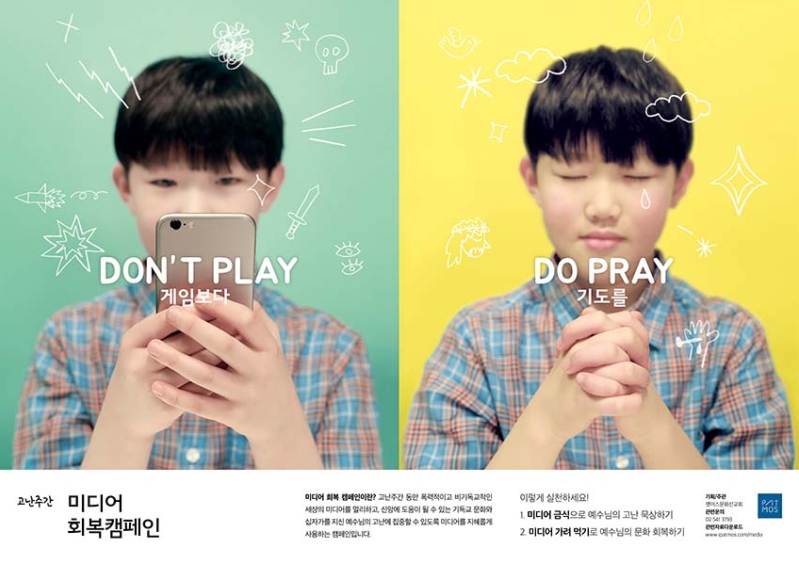
As short-form content addiction spreads across generations through platforms like YouTube and TikTok, Patmos Cultural Mission (Patmos) is once again running its annual "Holy Week Media Recovery" campaign this Lenten season. The organization announced that the effects of "media fasting" have been scientifically proven through recent research.
What is media fasting?
Media fasting involves setting specific times and durations to abstain from media consumption, akin to the concept of "digital detox." A recent study published in the international journal PNAS Nexus examined the effects of smartphone usage on cognitive function and mental health. The research, conducted on 467 smartphone users, found that even a brief two-week suspension of mobile internet usage resulted in significant improvements in mental well-being and cognitive function.
Participants who restricted their mobile internet access reported reduced levels of depression and anxiety, along with increased life satisfaction. Notably, their attention and focus improved to an extent that counteracted approximately ten years' worth of cognitive decline due to aging.
The study, titled "Blocking Mobile Internet on Smartphones Improves Sustained Attention, Mental Health, and Subjective Well-being," demonstrated clear enhancements in attention span, mental health, and overall well-being after just two weeks of media abstinence. The full study results can be accessed at https://doi.org/10.1093/pnasnexus/pgaf017.
However, only 25% of participants were able to complete the full two-week trial, with the majority struggling to endure complete digital disconnection. This outcome underscores the deep dependence modern individuals have on digital devices.
Addressing smartphone dependency
The pervasive reliance on smartphones has reached an unprecedented level. With countless apps, websites, social media platforms, and news sources readily accessible through mobile devices, people are consuming media more than ever before.
In response to this reality, Patmos has designed its Lenten campaign using vertical short-form videos tailored for mobile viewing and sharing. These videos illustrate the transformation of an individual struggling with smartphone addiction, who ultimately finds peace and restoration through faith and scripture.
Practical steps for media recovery
Patmos promotes two practical approaches: media fasting and media discernment. While digital detox merely involves abstaining from digital devices, media fasting integrates spiritual disciplines such as prayer and scripture meditation, fostering both physical and spiritual renewal.
Recognizing the difficulty of completely cutting off digital consumption, Patmos also advocates for media discernment, encouraging believers to selectively consume content that aligns with their values. As part of the Holy Week observance, they suggest dedicating one week to focused Bible reading, daily devotional practices, and engaging with spiritually enriching content available through their campaign website. Alternative Christian media sources such as Christian Today, YouTube sermons, and faith-based social media pages can also serve as positive options.
Through these efforts, Patmos aims to challenge believers to cultivate a more intentional and spiritually edifying approach to media consumption.
*This article is a translated and revised version of Christian Today.






